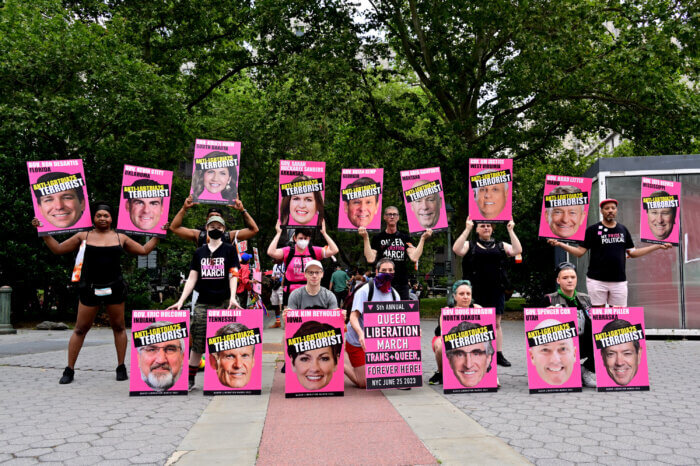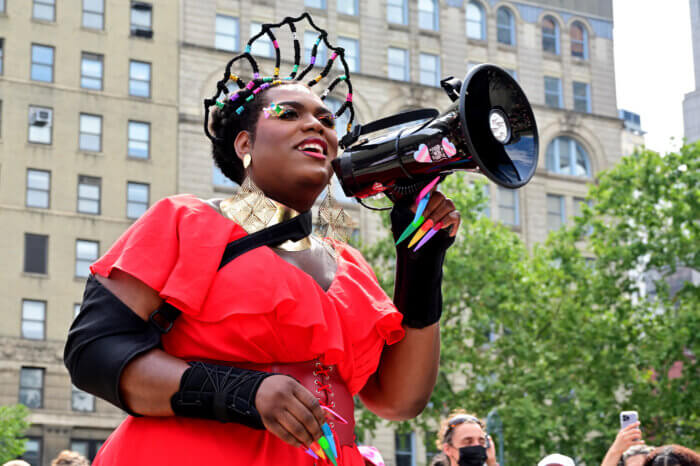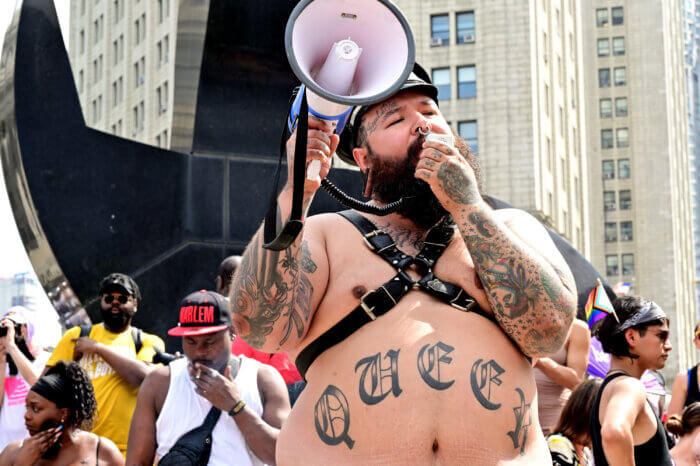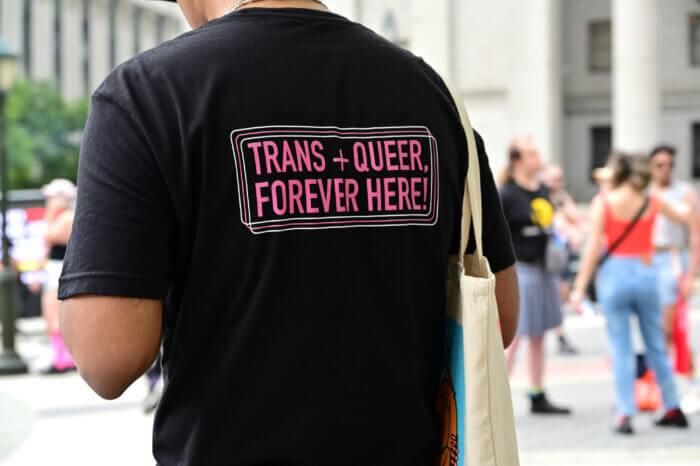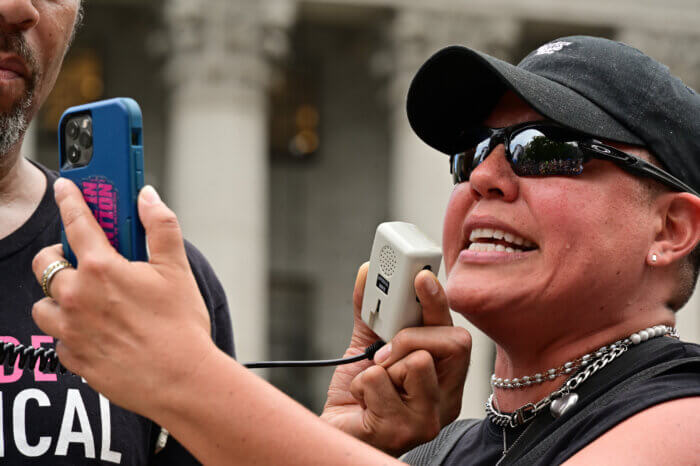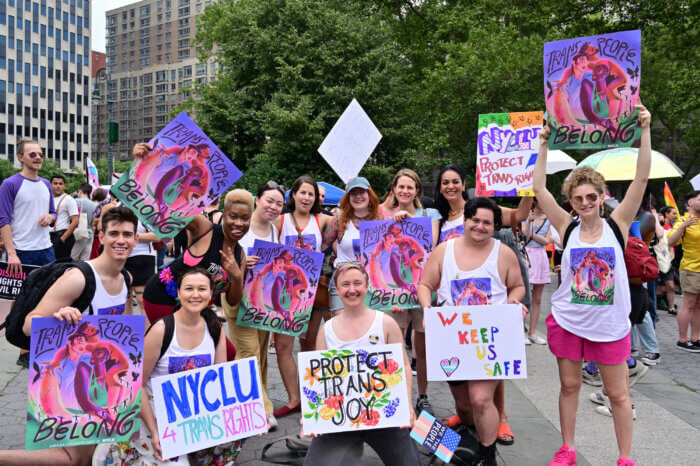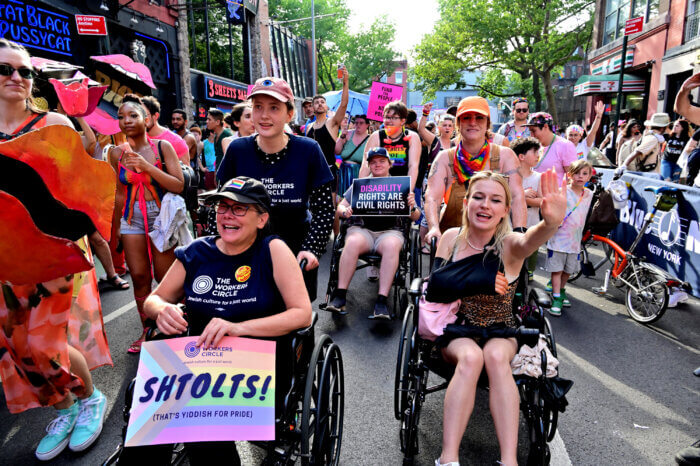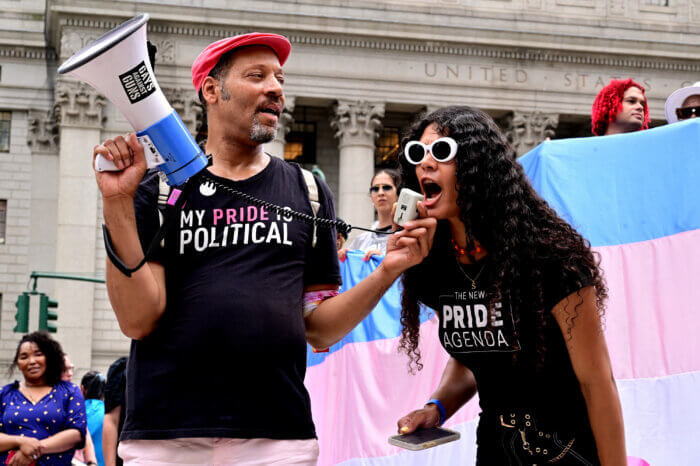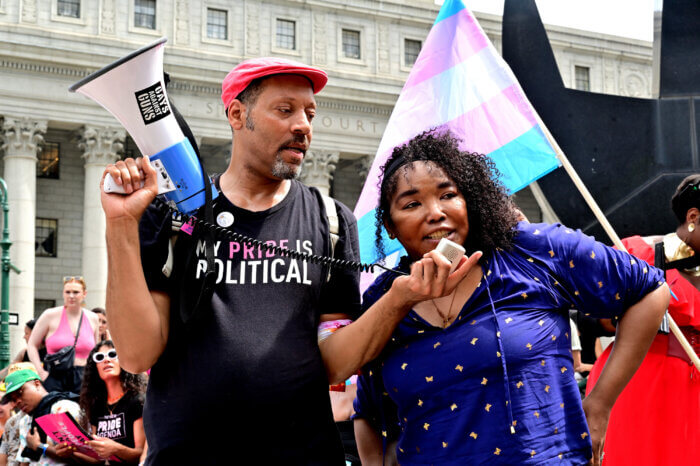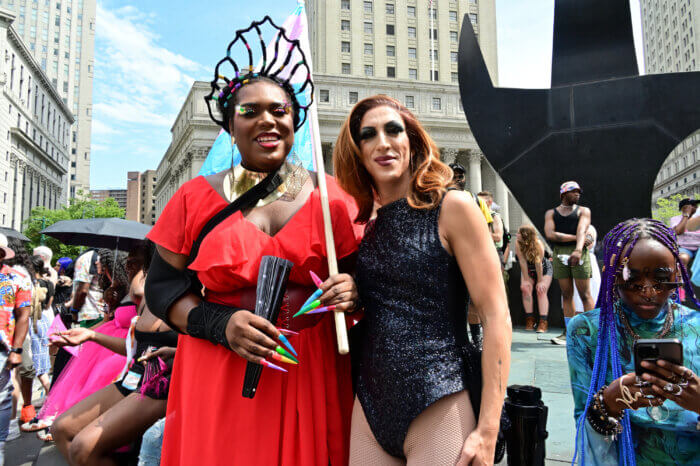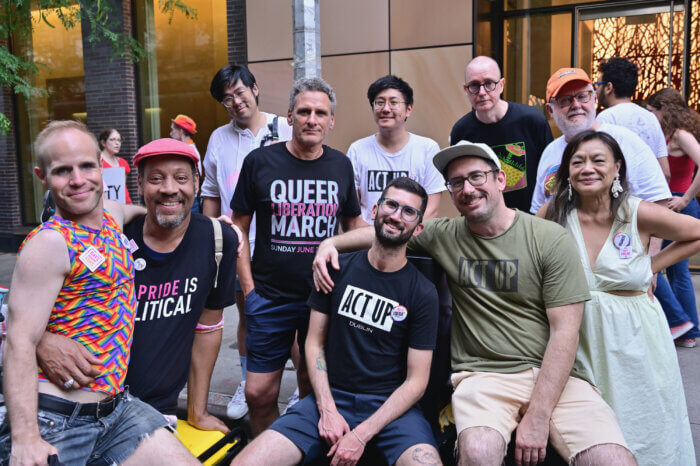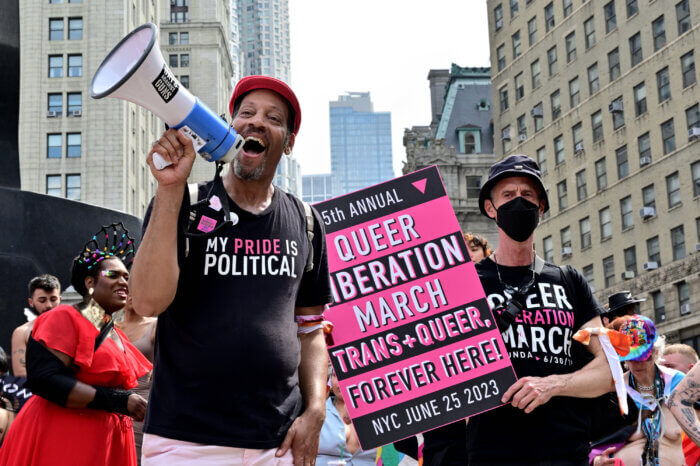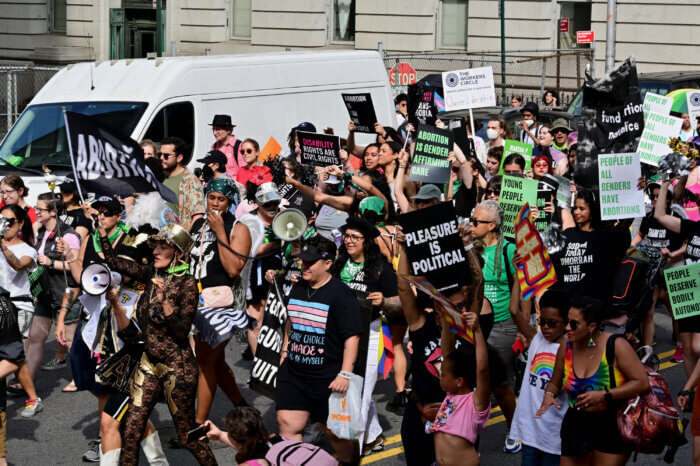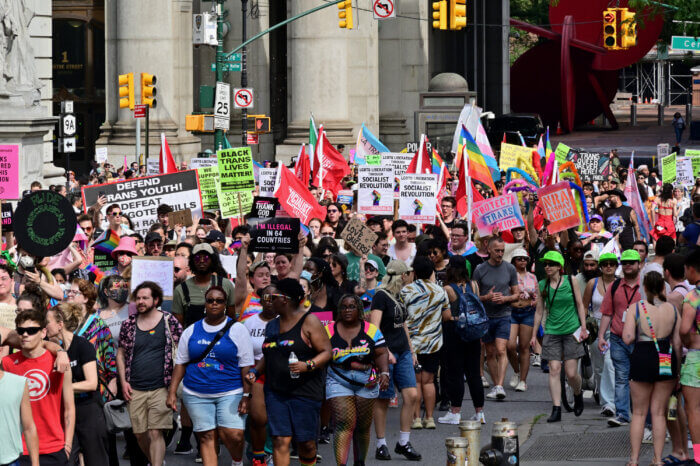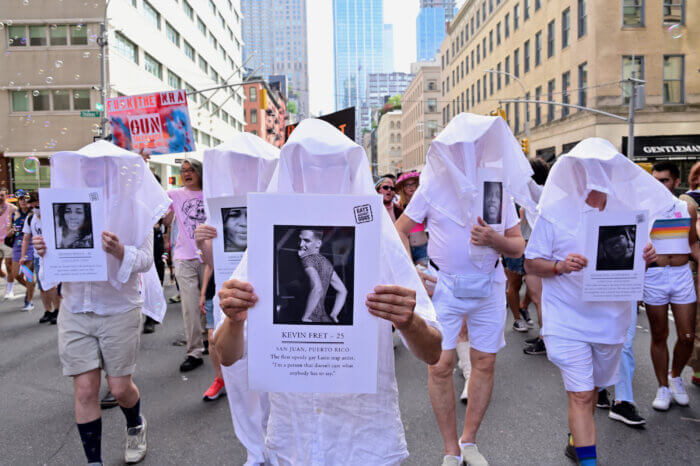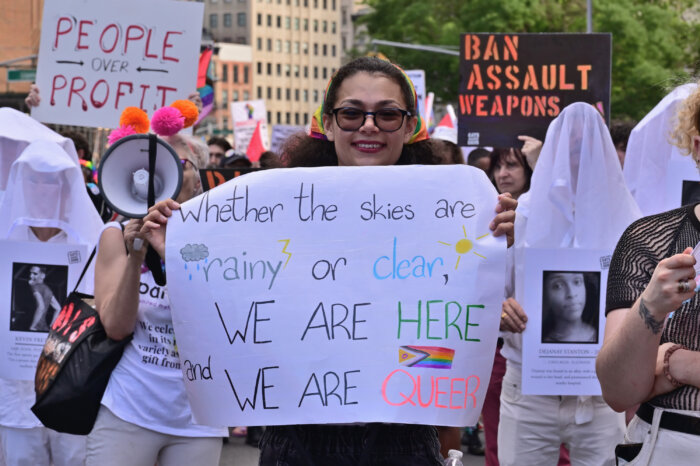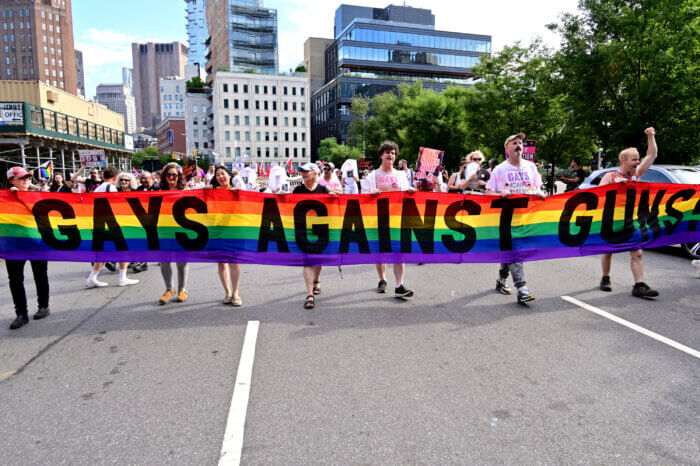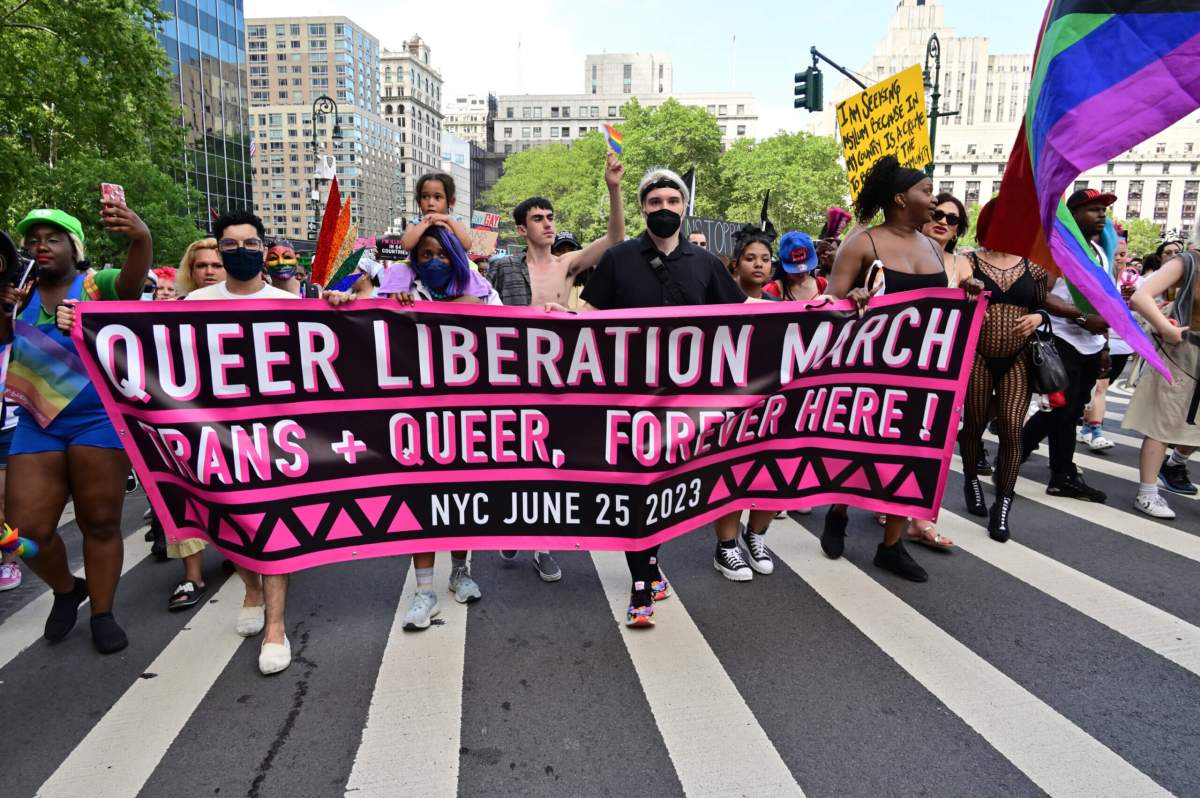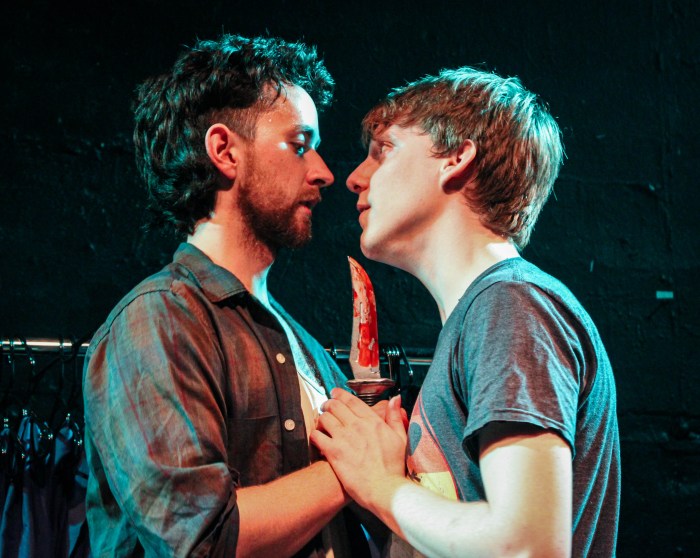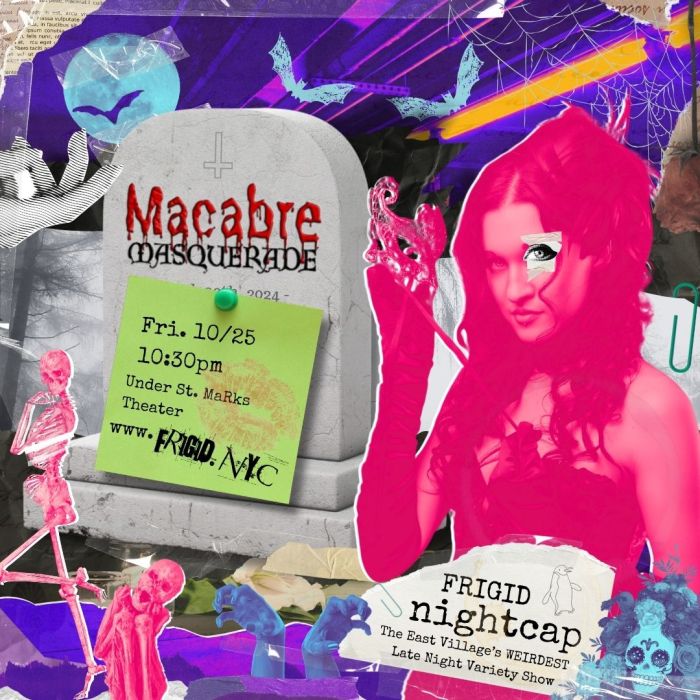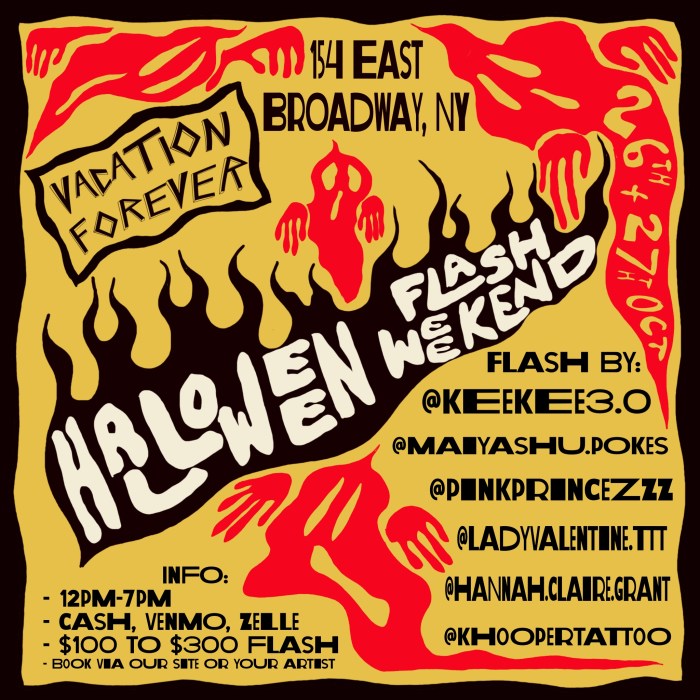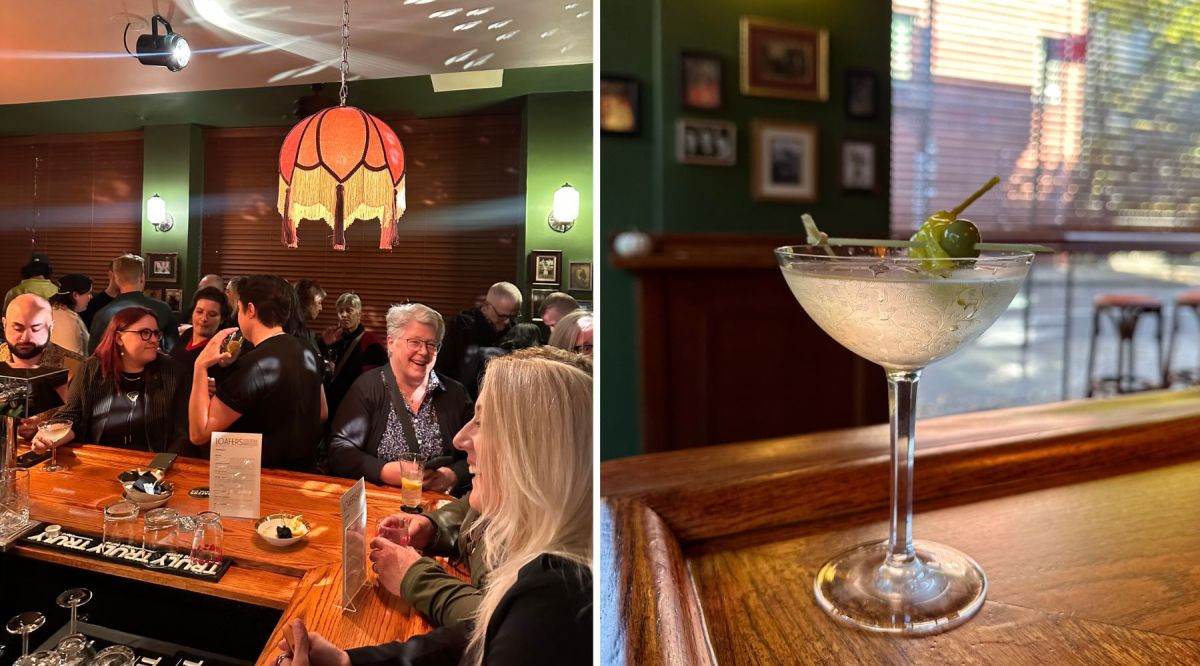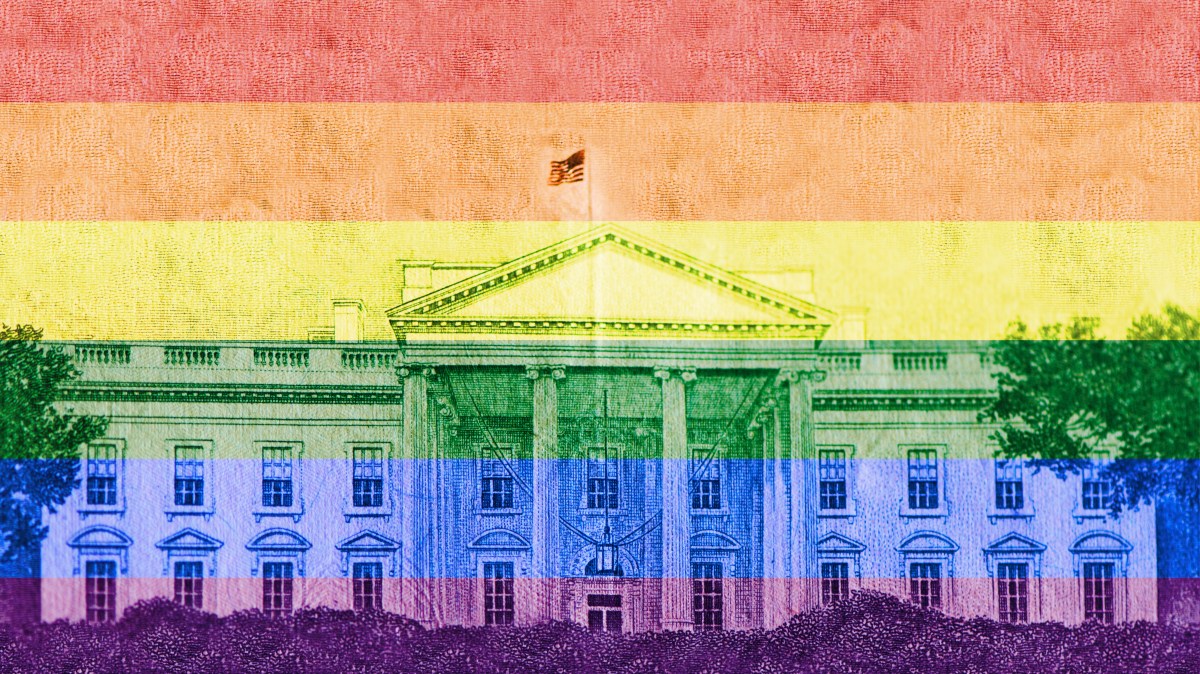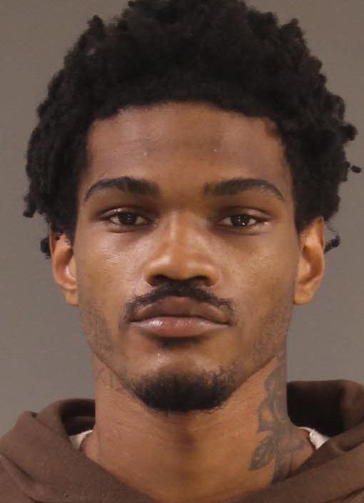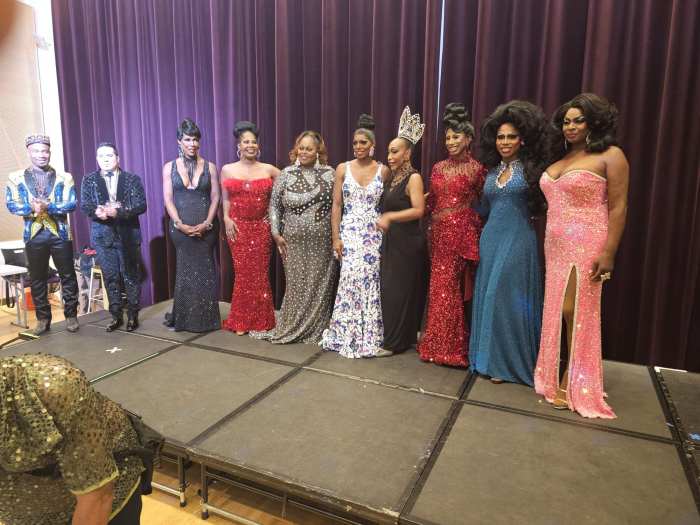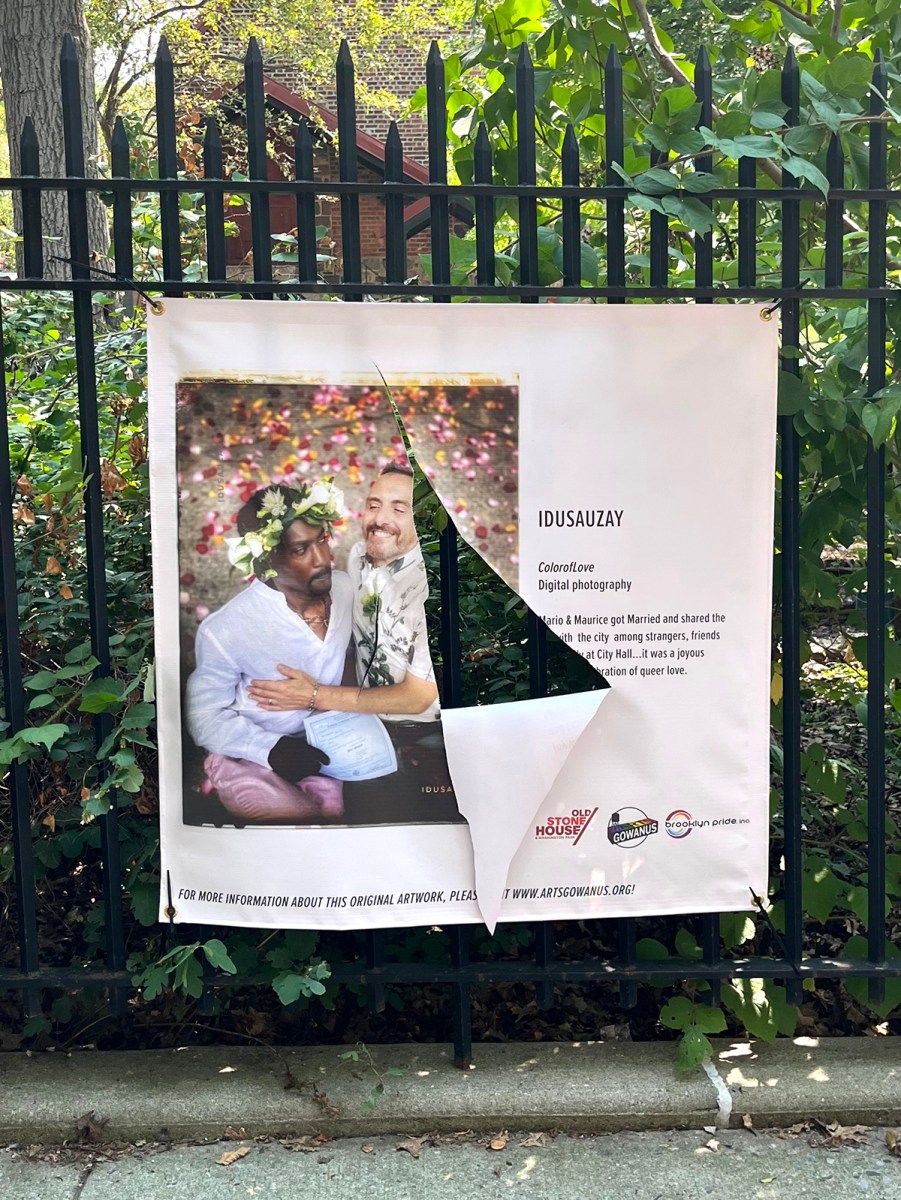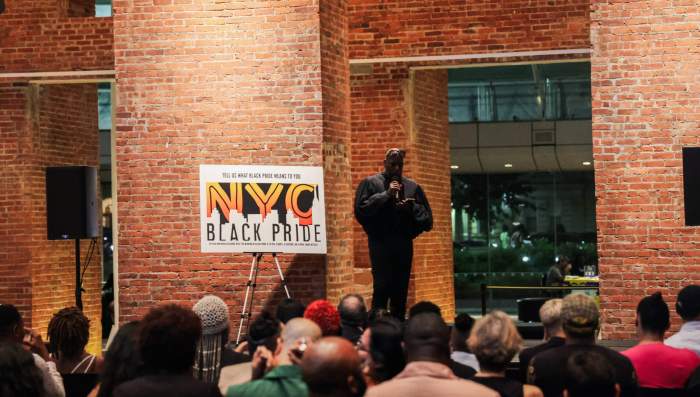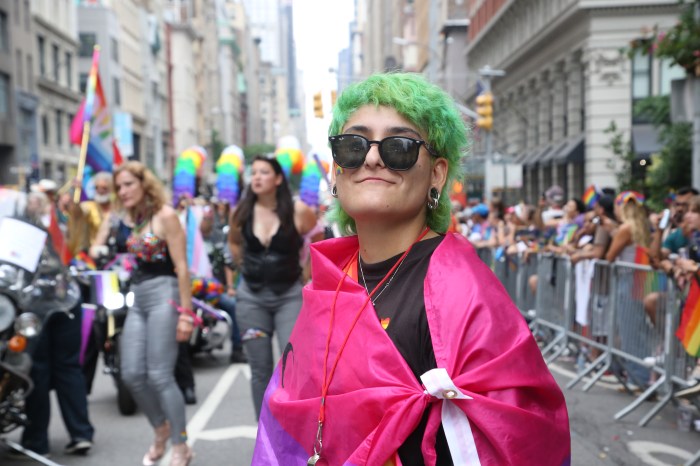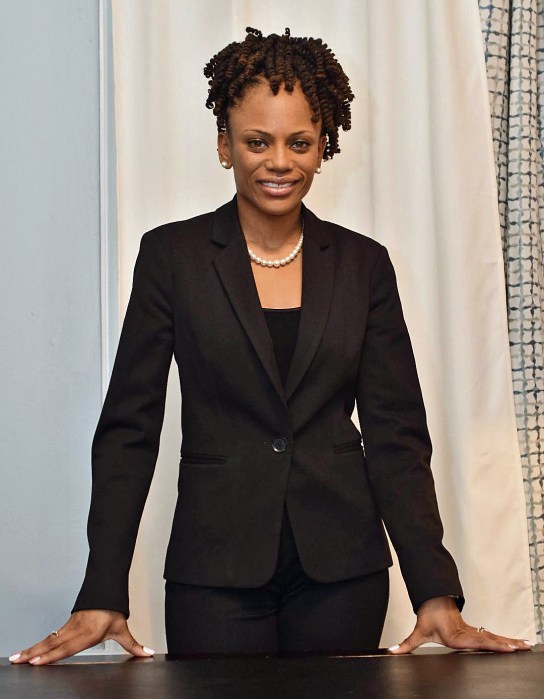After a brief rain shower passed through the city, thousands of marchers equipped with an array of custom-made signs and artistic banners assembled at Foley Square on June 25 for the Reclaim Pride Coalition’s rally and Queer Liberation March through the streets of lower Manhattan.
It was a hot day reminiscent of any other Pride Sunday in New York City, which now has two top marches on Pride Sunday. Not to be confused with the main NYC Pride Parade led by Heritage of Pride, the Queer Liberation March emerged in 2019 as an alternative, grassroots-driven event that sought to disavow the corporate and police presence at the march. The Reclaim Pride Coalition does not seek permits to march.
The Queer Liberation March has grown in size over the years — and it stood out during the height of the COVID pandemic when it continued to host an in-person Pride march when the main NYC Pride March scaled back and went virtual. This year’s event — held under the theme of “Trans + Queer, Forever Here” — drew another jam-packed crowd, which expanded as speakers delivered remarks at the opening rally.
Qween Jean, a prominent activist who has spearheaded countless demonstrations for trans rights across the city, served as one of the leaders of this year’s Queer Liberation March and delivered impassioned remarks during the rally.
“I believe in Black trans liberation,” Qween Jean said. “I believe in Black trans power… When trans people unite, whenever we gather, it has no chance but to be magical, because as we can look around and see, our community has come out today. They not only look glorious, they look so divine. This is how we show up in our full armor.”
Qween Jean and other speakers at the rally injected energy and emotion into a deliberately political atmosphere in lower Manhattan. Marchers stepped off from Foley Square, passed by City Hall, and moved north before concluding at Washington Square Park, where music blared as people crammed into tight spaces and squeezed through the crowd. Along the way, volunteers linked arms at intersections to block traffic while marchers chanted phrases denouncing transphobia, rejecting police brutality, and affirming the rights of the LGBTQ community.
Rather than floats and flashy sound systems, the march featured live music from drums, cowbells, and other instruments. There was notable diversity across the Queer Liberation March, which included union groups, families, sex work activists, immigrant rights advocates, and a Gays Against Guns contingent, among others.
Olivia Wood, a CUNY employee and member of the Professional Staff Congress union representing 30,000 faculty and staff at CUNY, marched with a “Left & Labor for Trans Rights” banner. She underscored the importance of fighting for a range of labor-related causes and stressed that many issues have far-reaching consequences, such as the ways in which teachers have been impacted by the recent trend of anti-LGBTQ attacks in the education system.
“The idea is that workers of all kinds fight for not just things like raises and healthcare, but also for enshrining things in our contract and in terms of awareness,” Wood said.
Another marcher, Chandra, who was accompanied by two children and opted to identify with only one name out of concern for safety, expressed a combination of excitement and determination ahead of the march.
“I have two non-binary offspring who I am so proud of and adore,” Chandra said. “I’m so excited to support them. The world is really, really scary right now for people who are living their truth, and I intend to speak up, live my truth, and make a stand for others to do that, as well.”
Many of the messages emblazoned on signs in the march reflected the political climate permeating the nation. There were signs towards the front of the march featuring pictures of governors known for anti-LGBTQ policies — especially anti-trans policies — and each governor was labeled as an “ANTI-LGBTQIA2S TERRORIST.”
In addition to the rally and march, there was also a Community Health Fair that was led by Treatment Action Group and also featured ACT UP NY, Research Enterprise to Advance a Cure for HIV (REACH), African Services Committee, Callen Lorde Community Health Center, Apicha Community Health Center, and Housing Works.
